About
The Institute of Oncology Research (IOR), located in Bellinzona (Switzerland) and directed by Prof. Andrea Alimonti, is affiliated to the Università della Svizzera italiana (USI) and hosts researchers from all over the world performing basic and translational research in oncology with special focus on:
- cancer biology
- genomics
- molecular oncology
- experimental therapeutics.
The IOR is located in a brand-new high-tech research building that hosts more than 20 different research groups, with state-of-the-art labs and facilities. Together with the Institute for Research in Biomedicine (IRB), the IOR is member of the Bellinzona Institutes of Science (Bios⁺), a recently established non-profit association aiming to promote, support and coordinate scientific research and teaching activities of its members.
At the IOR we believe that science is constantly evolving to improve our understanding of human cancer.
The efforts of our researchers and the resources of the institute are directed towards this challenge, with a commitment to discovering practical and far-reaching solutions to a disease that still impacts on the everyday life of many people around the world.
History
The Institute of Oncology Research (IOR) was established in 2003 as the Laboratory of Experimental Oncology and as part of the Research Division of the Oncology Institute of Southern Switzerland (IOSI) under the leadership of Prof. Carlo Catapano.
Since its founding, the IOR has continued on its path of expansion strengthening its research capabilities and activities.
In September 2011, the Institute became independent and is now managed administratively by the Foundation for the Institute of Oncology Research (President, Prof. Franco Cavalli).
As of January 2017, the Canton Ticino approved the affiliation of the IOR as an academic institute within the Faculty of Biomedical Sciences of the Università della Svizzera italiana (USI). From July 21, 2021, the IOR, together with the Institute for Research in Biomedicine (IRB), is member of the Bellinzona Institutes of Science (Bios+).
As of January 2024, Prof. Andrea Alimonti is the new Director of the IOR, succeeding Prof. Carlo Catapano who leaves the leadership of the IOR after 20 years due to reaching retirement age.
Mission
Research activities at the IOR encompass different topics and methodologies from basic research to translational and clinical research on various aspects of cancer biology, diagnosis and therapy.
Research
The quality of the research conducted at the IOR is demonstrated by the relevance of the scientific publications that have appeared in journals with a very high impact factor and by the competitive grants, prizes and fellowships awarded to its researchers at national and international level.
Currently, there are 8 research groups active at the IOR and about 100 researchers. Research activities are formally organized into two main research programs: the "Tumor Biology and Experimental Therapeutics Research" Program, dedicated to solid tumors, such as prostate, breast and ovarian cancer; and the "Lymphoma and Genomics Research Program", dealing with hematological neoplasias and lymphomas in particular.
Researchers working in both programs integrate biological, genomics and molecular approaches with preclinical and translational studies to understand the disease and identify new treatment strategies.
Despite this team distinction, there is constant overlap and crossover of initiatives among the teams and within the two programs, as shown by the growing number of joint publications and funding requests. Indeed, there is an important continuity of the efforts among researchers at the IOR with the common intent to integrate diverse methods and disciplines, such as biology, biochemistry, pharmacology, molecular oncology, genetics and genomics. Common objectives are the acquisition of new knowledge of the mechanisms underlying cancer development and the discovery of new diagnostic approaches and therapeutic strategies.
Our Approach
Important features of the work conducted at the IOR are the interdisciplinary approach, the involvement of basic and clinical researchers and the constant interaction with a large network of external collaborators locally, nationally and internationally.
This is particularly true for our extremely intense interaction with the Oncology Institute of Southern Switzerland (IOSI) via numerous common working groups, which ensure a continuous exchange of ideas and in particular that new findings generated in the laboratory research can be immediately translated into clinical trials at IOSI. The same applies to the International Extranodal lymphoma Study Group (IELSG) with its worldwide network of collaborating centers.
Education
The IOR has a strong commitment to the education and training of young researchers through international collaborations with various universities and research centers. In addition, the IOR contributes to the educational programs of the Faculty of Biomedical Sciences of the Università della Svizzera italiana (USI) and to the doctoral school with the PhD Program in Cancer Biology and Oncology.
The IOR is regularly involved in organizing academic and training courses.
Partners and supporters
Partners
Institute for Research in Biomedicine (IRB)
Oncology Institute of Southern Switzerland (IOSI)
Ente Ospedaliero Cantonale (EOC)
International Extranodal Lymphoma Study Group (IELSG)
Swiss Institute of Bioinformatics (SIB)
Academic partners
Università della Svizzera italiana (USI)
Dalle Molle Institute for Artificial Intelligence (IDSIA)
Dipartimento di Medicina, Università di Padova
Eidgenössische Technische Hochschule, ETH Zürich
Institutional supporters
Fundings
The IOR and the IOR Foundation are academic and non-profit organizations that promote research in the field of oncology. The institutional funding awarded to the IOR by the Confederation, the Canton and the City of Bellinzona plays a central role in supporting the Institute's activities.
Our research projects are supported by competitive funding obtained by our researchers from national and international agencies such as the Swiss National Science Foundation (SNSF), Innosuisse, the Swiss Cancer League (KLS), the Swiss Cancer Research Foundation (KFS), the Fondazione Ticinese Ricerca Cancro (FTRC) as well as the European Community and many private foundations. In addition, the IOR receives funds from private donors, which are essential for continued research support, training programs, acquisition of new research tools, and enhancement of technology platforms available to our students and researchers.




